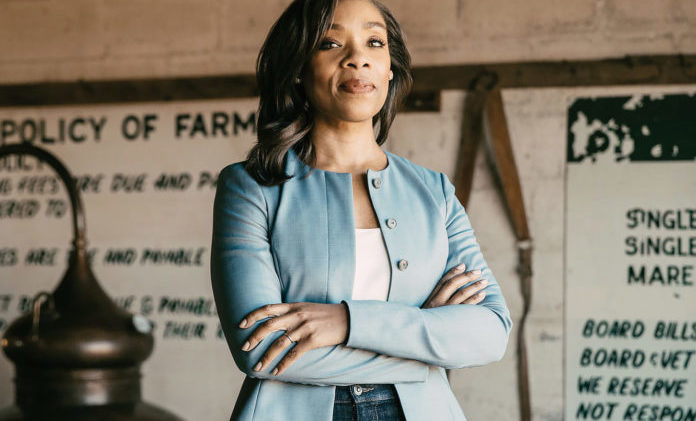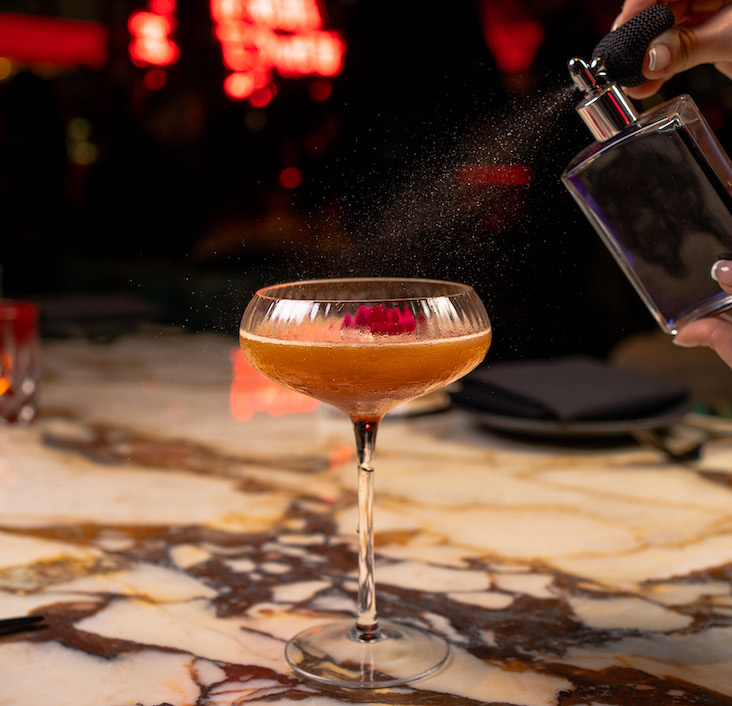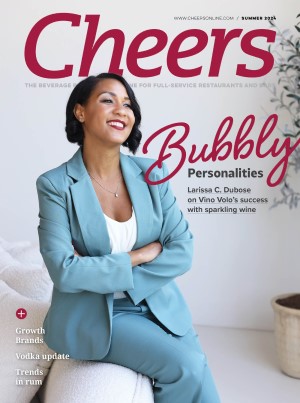Just as whiskey is not “a man’s drink,” the beverage alcohol business is not for men only. So many women have made a significant contribution to growing, improving and evolving the industry, from launching brands, inventing and improving processes to fostering education and nurturing legacies in the world of wine, spirits and beer.
For instance, Madame Clicquot, widowed at age 27, took over her late husband’s wine business in 1805. She invented the riddling rack/process for making Champagne and made Veuve Clicquot one of the leading Champagnes in the world.
Then there’s Catherine Spears Frye Carpenter, who created the first known recipe for sour mash in whiskey production in Kentucky in 1818.
Ada Coleman, named head bartender at The American Bar at London’s The Savoy hotel in 1903, was first female “bar star” and creator of the Hanky Panky cocktail.
We can thank Margie Samuels for the Maker’s Mark name and for the bourbon brand’s signature red wax seal in the 1950s. Madeline Triffon blazed a trail as the first American woman—and second woman in the world—to pass the Master Sommelier examination in 1987.
Kim Jordan, a craft beer pioneer, cofounded New Belgium Brewing in 1991. Marianne Eaves, Kentucky’s first female master distiller in 2015, recently launched a new whiskey education program called EAVES Blind. And that’s barely scratching the surface of contributions women have made to the industry.
We reached out to some of the influential women in beverage alcohol today to learn more about their backgrounds, inspirations and role models, and what it means to be a leader in the industry today. Here’s to them, and all who came before them, as well as those now on their way up.
Check back next week for Part 2 with more amazing female leaders and trend-setters in the alcohol industry!
Julie Momose
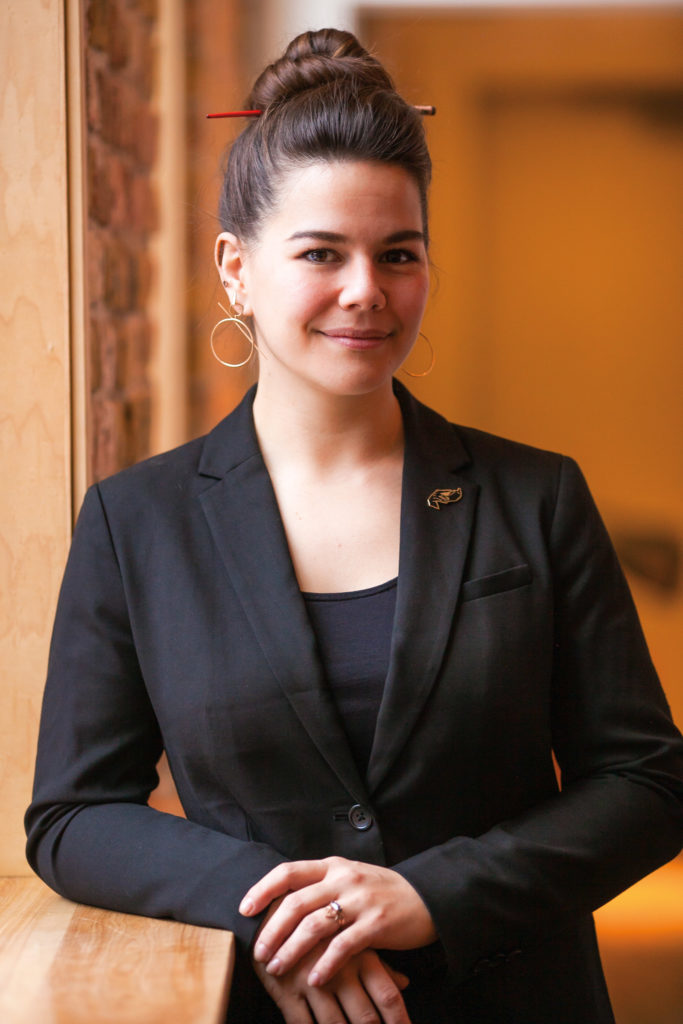
Mixologist Julia Momose is not only partner and creative director at Kumiko, a Japanese dining bar in Chicago, she also pioneered the spirit-free drink movement and pushed for allowing cocktails to-go in Illinois during the pandemic.
How did you get into the beverage alcohol business?
I started off in hospitality when I was in high school in Japan. Watching the bartenders there made me fall in love with it all. When I moved to America for university, I started working in bars and restaurants to help pay for school. When I finally got behind the bar, I never looked back.
To be able to take people’s frustrations and celebrations, and serve them a drink or feed them food that brings them peace and makes them happy—it’s a feeling I absolutely love.
What makes you a successful leader?
Success is such a hard thing to define. It’s different for everyone. I don’t see success as a single endpoint, but the journey of the path you walk. And sometimes it won’t be as straight as you think it is. Think of the idea of perfection: You’re constantly pursuing it, but can never quite achieve it. To me, success comes in bettering yourself everyday towards an unattainable ideal. To go towards success is success in itself.
How important is mentorship? Did you receive any coming up, and is that something you provide to women in your organization?
I didn’t have many mentors coming up, per se. I came up at a time when there weren’t many women behind the bar, unlike today. Those who were in it experienced some level of harassment and discrimination, but I was glad that many of us women bartenders banded together and looked out for each other.
All these years later, I’m happy to have found myself in the position of mentoring other women in the industry. There’s a women’s bartending competition called Speed Rack, and I’m lucky to be the mentor of a wonderful bartender in Washington, D.C. We talk and set goals together, and I get inspired when I talk to her.
What inspired you to write the Spirit-free Manifesto in 2017?
My parents don’t drink alcohol, so I was always working on non-alcoholic drinks; it’s really important for me. When I worked at the Michelin-starred restaurant GreenRiver, I remember people coming to the bar, almost embarrassed to ask for a mocktail. Their brows crinkled and they’d almost look distressed asking for a non-alcoholic drink. That just made me so sad. No person should feel embarrassed to order a perfectly reasonable beverage at a bar, no matter what it is.
So I wrote the Spiritfree Manifesto with the hope of changing the way we talked about non-alcoholic drinks, to pull them out of this sense of judgment. Non-alcoholic drinks have always had silly names that lessened the quality of the drink, such as kiddie cocktails or virgin such-and-such.
All these names implied something that was lacking, and there’s nothing lacking about these drinks — they’re thoughtfully crafted, and often took more skill and time to prepare than drinks with alcohol. There is no compromise with drinks that are spiritfree.
Who are your professional role models?
Noah and Cara Sandoval, my business partners. Years ago, a friend had a birthday dinner at their Chicago restaurant Senza. From the moment we stepped in, it was the warmest and most welcoming experience, with spot-on service and magnificent execution. Everyone who worked there seemed happy and enjoyed being there.
I’d find out that’s all because of Noah and Cara and the culture of care that they have created where staff feel safe and respected. I’ve worked at places where that wasn’t the case — places where you’d get yelled at or worse all in the name of the pursuit of greatness or perfection.
Noah and Cara showed me that you can be really awesome people and still be at the top of your game. They showed that you don’t have to step on anyone to get your goals, and that it is about hiring and cultivating good people first. The rest will follow.
Margaret Jabour
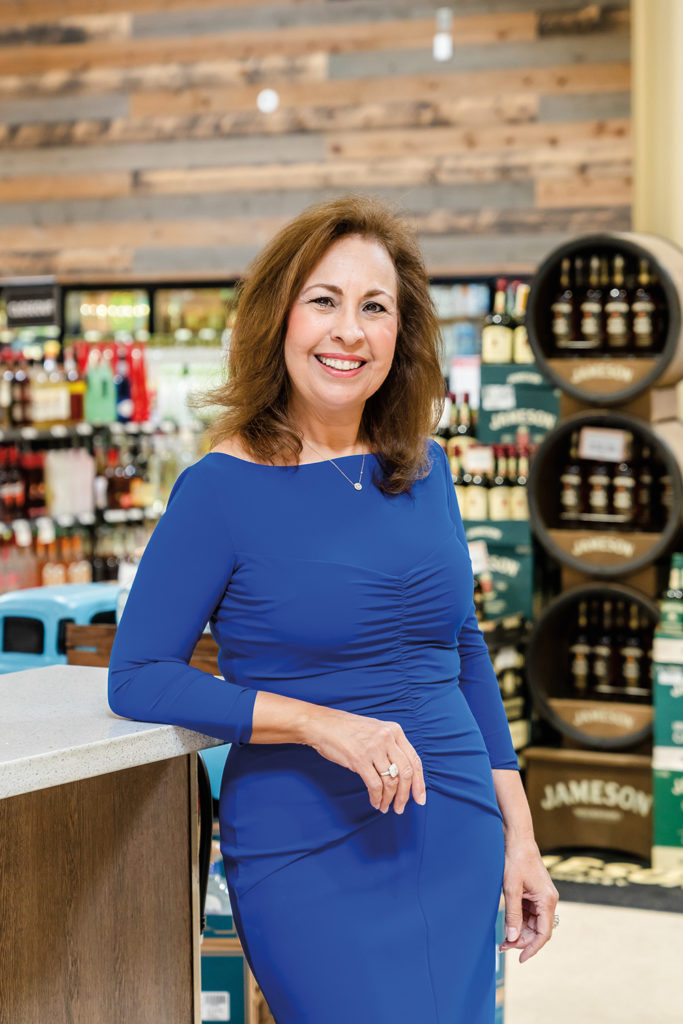
Margaret Jabour is executive vice president of retailer Twin Liquors in Austin, TX.
How did you get into the beverage alcohol business?
I grew up in the industry. At age seven, I began working in my father’s package store, a combination liquor and drug store that had a soda fountain in the back. I enjoyed watching my dad interact with his customers and learned the importance of relationships watching him.
I was intending on going into the fashion industry when my father decided to retire in 1981. At that time, my brother, David, and I decided to keep the family business going as third generation with the desire to elevate the beverage alcohol industry.
My goal was to bring the department store shopping experience into the wine and spirits industry in a way that would attract the female consumer. We did this through refined and education-oriented stores.
What makes you a successful leader?
My intuition, positive mindset, vision, and problem-solving skills. My intuitiveness allows me to plan and react to challenges and opportunities before they become greater issues. My positive outlook gives me the confidence and enthusiasm needed to motivate and encourage my team.
A strong team is important for success. Together my team and I can strategize and create new opportunities and come together to defeat challenging situations. I spend the first hours of every new day meditating and problem-solving, approaching each day in a positive manner setting precedence for the success of my team.
How important is mentorship? Did you receive any coming up, and do you provide it to women in your organization?
Mentorship is extremely important because it allows for trust, respect, and honest communication. A team is built through mentorship. I was blessed to be born into a family that loves people and life. They always put others’ needs first, an important attribute for a business leader.
I am proud to mentor women in my business and in the industry and am proud to say that I have mentored many. When I entered the industry in 1982 there were very few women. Today I am happy to say that women compose around 40% of all associates at Twin. My door is always open, and I welcome my team to reach out to me should they ever need guidance. I like to think of myself as the mom of the company.
How has your company benefited from having women at the table making decisions?
Absolutely! Having women on the team allows for a diversity that fosters creativity and new ways of thinking, providing an organized, creative, and open-minded approach that resonates across the company. Women tend to be able to share personal stories that allow inspiration and change that is essential in keeping our company strong and relevant.
Who are your professional role models?
My family. My parents taught me the value of meaningful relationships and showed me the importance of love for others. These lessons are the foundation upon which I have built my business.
Watching my maternal aunt, a strong businesswoman with a strong personality and a passion for people, inspired me to understand the confidence it takes to be a leader. My maternal uncle encouraged me to take chances and have courage to take a leadership role in business. At the age of 13, I took on my first management position and was responsible for managing a team of four women.
Fawn Weaver
Fawn Weaver (shown atop) is CEO and cofounder of Uncle Nearest, a Shelbyville, TN-based premium whiskey brand named after the formerly enslaved man, Nathan “Nearest” Green, who taught a young Jack Daniel to distill.
How did you get into the beverage alcohol business?
I got into the beverage alcohol business when uncovering the story of the first known African American master distiller, Nearest Green. During that time I realized how important it was for Nearest’s legacy to never again be forgotten.
The only reason we’re still talking about Johnnie Walker, Jim Beam and Jack Daniel is because we are still sipping on their spirits and seeing their names everywhere. So, in order to cement the legacy of Nearest Green, I knew I would need to do the same with an award-winning spirit that was worthy of his legacy.
What makes you a successful leader?
I am authentic, transparent, and lead from my heart and trust my gut. I am unwavering in my faith and treat my team as though they are the most invaluable part of this business, because they are.
How important is mentorship? Did you receive any coming up, and do you provide it to women in your organization?
Mentorship is incredibly important for many people. I received very little coming up — really, I received none. But I was a voracious learner and reader, and learned mostly everything I needed to know through reading the advice of other successful people, and then applying it to create my own experiences.
I am wired quite differently than most, however. My personality type (INT — introverted, intuitive, thinking and judging) makes up less than 1% of the world. So, my approach was very different from what the majority of the world needs. Mentorship is important for most coming up in our industry and in business overall.
How has your company benefited from having women at the table making decisions?
We are able to compartmentalize much better than men, I believe, and thus benefited greatly during the pandemic and in other crises. Women have long proven to be more effective leaders.
Who are your professional role models?
Warren Buffett, J.P. Morgan (and Jr.), Andrew Carnegie, Oprah Winfrey.
Julie Milroy and Bridget Albert
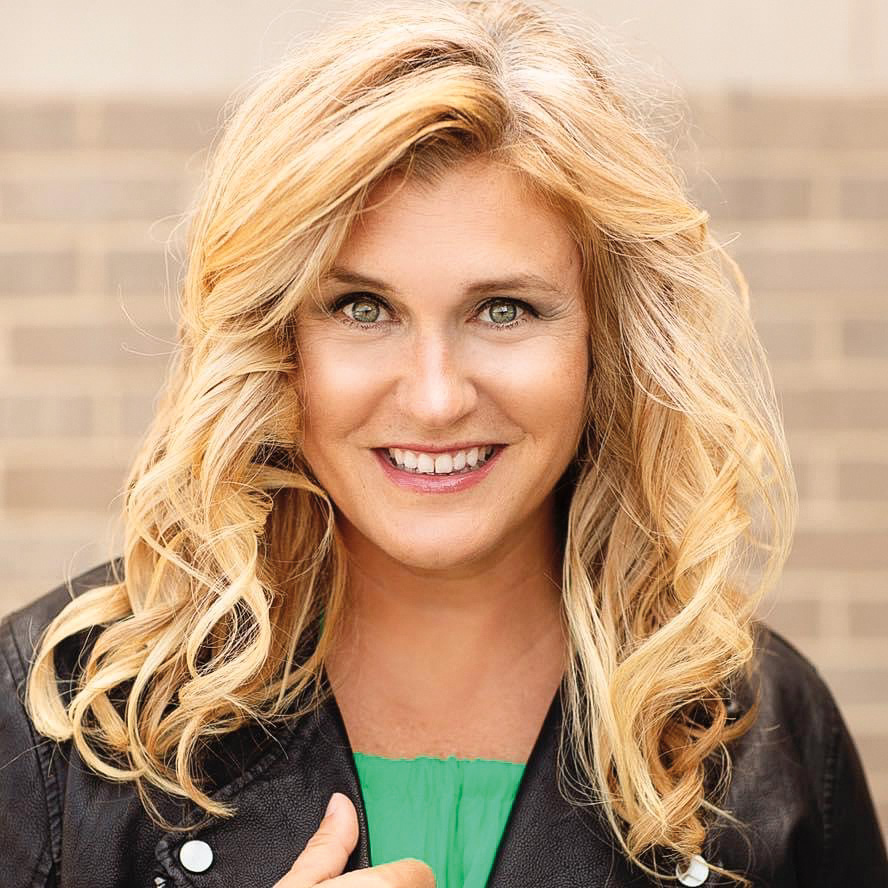
Julie Milroy is vice president of on-premise, and Bridget Albert is national director of education, Beam Suntory, for the distributor Southern Glazer’s Wine & Spirits.
How did you get into the beverage alcohol business?
JM: My mother owned restaurants growing up where I would work after school and during summers. I understood early on that the alcohol revenue stream was instrumental in keeping the restaurant buzzing and profitable.
In my late 20s, I decided to make a career change from real estate to the wine industry when I had the opportunity to tour Walla Walla and Willamette Valley with a sommelier friend. I applied to a few companies in Miami using Winejobs.com and landed a sales opportunity with Vinifera Imports & Distributing.
After almost three years of immersion into fine Italian wine and the sommelier scene in Miami, I had an opportunity to join Southern Wine & Spirits as a sales consultant. Today, we are Southern Glazer’s Wine & Spirits and I am national VP of on-premise representing the Beam Suntory portfolio.
BA: I come from a long line of female bartenders. My great grandmother, great-great Aunt Tilly, and my grandmother bar backed when they were very young at the tavern my family owned in Coal City, Illinois. This tavern was closed well before I was born; however, I grew up with their colorful stories that left me inspired. I have done just about every job at the bar, from dishes to bartending, in the course of my 26-plus years in our industry. I was even a flight attendant for Trans World Airlines.
Hospitality is all I know, and it is in my blood. It wasn’t until I moved to Vegas in 1998 and was hired at the Bellagio as a bartender that I truly began to appreciate our craft, cocktails, and all the madness that goes with the gig.
This is where I met my mentor, Tony Abou-Ganim. He changed my life for good. Under his teaching, my eyes were opened to a whole new world in our industry that led to many amazing opportunities, including world travel, an incredible gig, but most of all, the many friends that I have made, most I consider family.
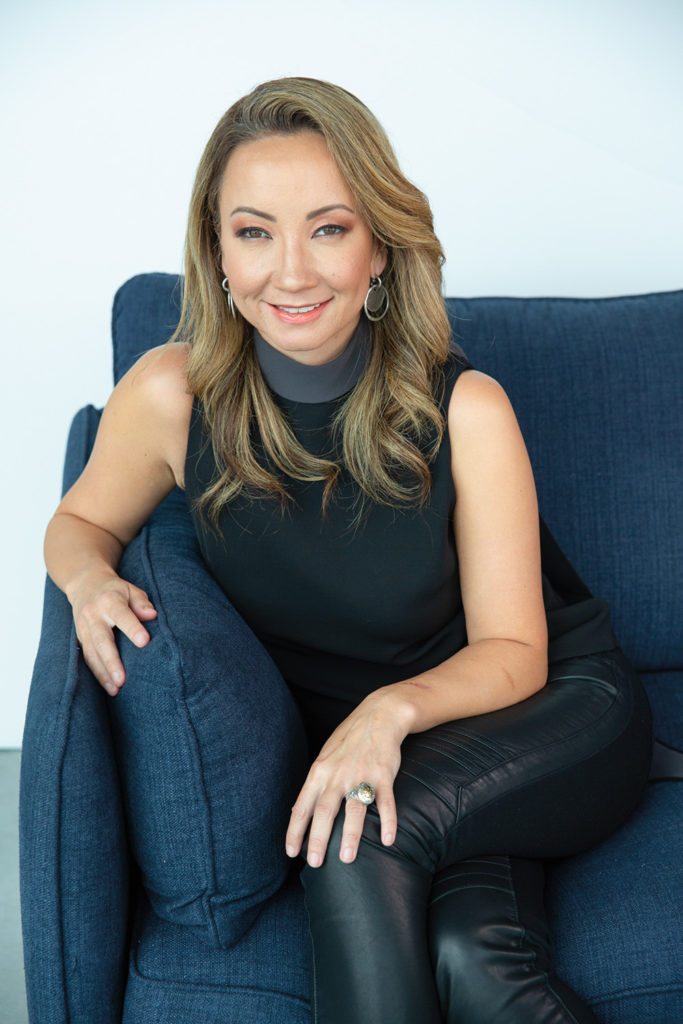
What makes you a successful leader?
JM: It starts with humility and empathy. I come from a matriarchal household where my mother kept us all happy, healthy, and thriving. She taught us the value of integrity, work ethic and to never assume things will just happen without ambition, determination and adding value.
I’m always thinking of past learnings, how to improve in the moment and how my choices and actions will impact my future. It’s very similar to chess, never by chance, always strategic.
BA: Being a successful leader is not actually taking the “lead” or taking over. It is creating an environment that is open and welcoming, where people feel safe and confident to succeed with your support. While at the same time, as the leader you need to take the step back so they can shine.
How important is mentorship? Did you receive any coming up, and do you provide it to women in your organization?
JM: I would not have the successful career I’ve had without the many mentors and mentees that have supported me along the way and continue to do so. I gravitate toward people with strong work ethic, professionalism, confidence, and strategic thinking. I made it a point to always raise my hand to volunteer for projects they were leading, champion their initiatives and respectfully ask them for their time.
I equally value mentoring those that ask the same of me. I’ve mentored and continue to mentor many women and young men in our business.
I always seek talent and when I find it, I will champion them by giving them strategic advice and connecting them with other leaders to build network capital. Mentors and mentees are critical to success.
BA: Mentorship and sponsorship are important if you have a desire to learn and grow. It is key to find a mentor or sponsor that has already made all the mistakes, has had the successes and is willing to take you under their wing, share their insights, and connect you with a good network that will also support you.
You will still need to do the work. Keep your network active, be a good listener, and don’t be afraid to ask the hard questions.
I have been fortunate to be a mentor and a mentee in my career. It is important that as women we continue to help one another rise! I feel proud to be a Southern Glazer’s family team member and to have the support of SGWS to launch Served Up — The Podcast with Julie [Milroy]. We are committed to continue to build a more diverse beverage community for all.
How has your company benefited from having women at the table making decisions?
JM: I’ve had the honor of working with many bold women leaders at SGWS. Since joining the company more than a decade ago, we’ve implemented many initiatives to empower women.
These include strong paid maternity and paternity leave policies, best-in-class leadership programs, and most recently, a national employee resource group, Caregivers CAN (collaborate, advocate, navigate), dedicated to advancing and supporting all caregivers.
Additionally, research has proven that women, at the table, making decisions, significantly improves the bottom line and drives high performance. This is the case at Southern Glazer’s and many other companies.
BA: It is no secret that the more diverse your table is, the more successful your company will be. As individuals, we bring our own experiences, knowledge, talents, skills, and bold ideas to the “table.” When this is cultivated and appreciated in an equitable, diverse space, that is when the magic happens!
Who are your professional role models?
JM: I have so many professional role models that have continued to become my lifeline. They know who they are and it’s impossible to name them all.
BA: My dad, David, my Market-Fresh Mixology co-author Mary Barranco, Tony Abou-Ganim, Julie Milroy and my grandmother, Rosella.
Jennifer Burke
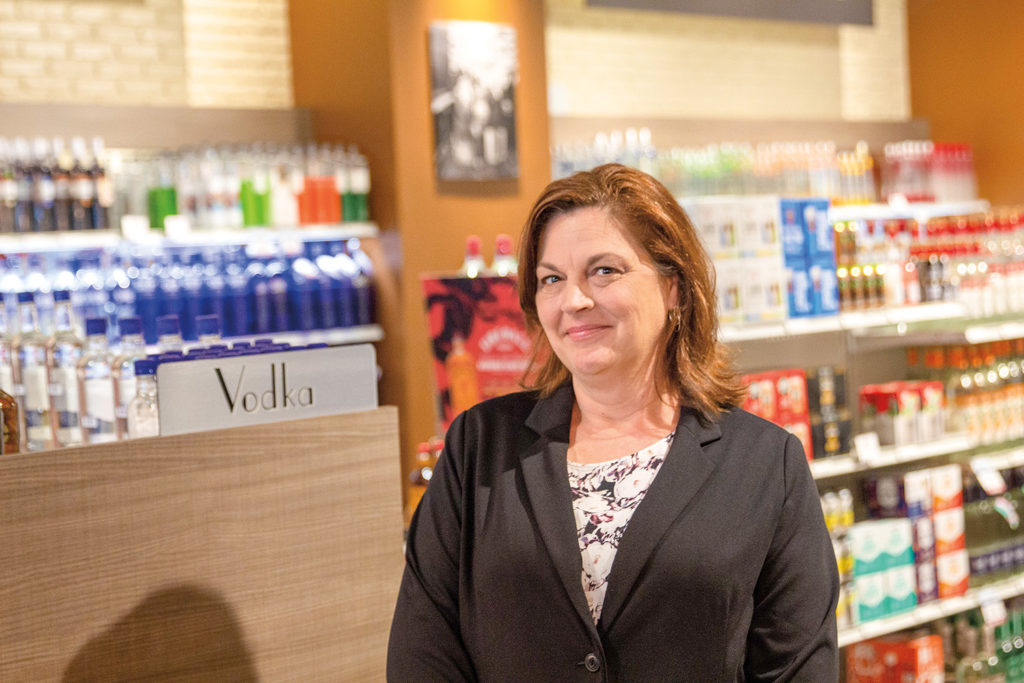
Jennifer Burke is director of retail operations for the Virginia ABC Authority.
How did you get into the beverage alcohol business?
Before joining the Virginia Alcoholic Beverage Control Authority three years ago, I had spent most of my career working for large retailers such as Dollar General, Target, Radio Shack and Food Lion.
I was contemplating a move back to Virginia to be closer to my family when the Virginia ABC opportunity presented itself. While I had no experience in the distilled spirits industry, my previous successes in managing operations for large retail chains proved to be a good fit.
What makes you a successful leader?
In my 25-year career, I have learned that leadership is less about you and the decisions you make as a leader and more about the environment you create for your people. When they know they are a valuable member of the organization and feel included in decisions that impact them, they will be more successful in their work.
The more successful they are, the more successful I am as their leader. I’m fortunate to have an incredibly talented team who are committed to carrying out ABC’s mission, which is to generate a reliable stream of revenue for Virginia and promote public safety through the responsible sale and regulation of alcoholic beverages. In fact, for fiscal year 2020, our 390-plus stores served approximately 35 million customers and generated more than $1.1 billion in sales—our most successful year yet!
How important is mentorship? Did you receive any coming up, and do you provide it to women in your organization?
During my career, I have had the pleasure of mentoring many young women as well as men and have stayed in contact with many of them to this day. I encourage all my employees to mentor someone at least once in their personal and professional lives. It’s satisfying to watch someone grow professionally and develop into a courageous leader.
I believe mentoring begins at a young age. My husband and I share a love for baseball and often coach co-ed youth baseball teams together. This is a great opportunity for girls to learn leadership skills at a young age in the presence of males, well before they are in a professional setting where they may be in the minority.
How has your company benefited from having women at the table making decisions?
My team benefits directly from my understanding of the challenges that come with being a successful executive who has managed to balance personal and professional responsibilities. I take spending time with family and loved ones seriously and encourage my managers, many of which are women, to do the same. I have learned that the key to success personally and professionally is to work smarter, not harder.
Who are your professional role models?
I have always been impressed with the British entrepreneur Richard Branson. He is a leader who motivates others to achieve what they desire without stepping on others to get there.
Branson loathes the formality of suits and ties and believes the value of people is what they contribute to the organization, not what they look like or the path they took to get there. I’m inspired by the way he provides opportunities to those who may have been overlooked because they didn’t fit the mold.
Maggie Kimberl
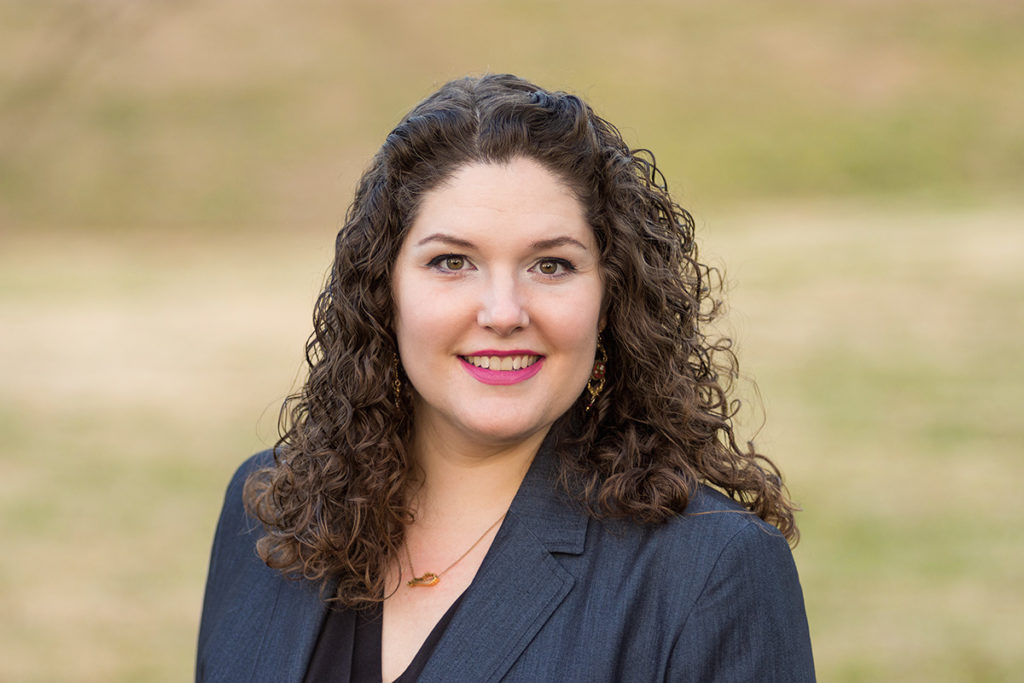
Maggie Kimberl is president of the Bourbon Women Association as well as content editor of American Whiskey magazine and a freelance spirits journalist focusing on whiskey.
How did you get into the beverage alcohol business?
I have told this story so many times that I think people are starting to think I made it up! When my kids were little I needed a part-time job, and there were no kids at the liquor store. I’d work three nights a week, learning about each category.
I started learning about craft beer during the craft beer boom then decided to learn about wine. I quickly figured out that wine people were not my people.
I have always been into the farm-to-table movement, and at one point I started looking at the bourbon aisle and realized that’s what was made here so maybe I should learn about that.
I had the opportunity to meet many Master Distillers, as this was back in the days when they would sit around in liquor stores signing bottles and doing tastings and most people didn’t know who they were. One night during [Kentucky] Derby week Jim Rutledge, who was with Four Roses at the time, was in my store for about four hours. But it was so busy I couldn’t get over to talk to him.
Then he started packing up to leave and I had to go on break, and as I was in the break room he came through the door with bottles in one hand and cups in the other and said, “You didn’t get to do my tasting!”
He sat down with me for about 20 minutes and taught me the proper bourbon tasting technique, a little about Four Roses’ history, and the different flavor profiles of their ten different recipes. That was my ‘aha!’ moment. I quit my job shortly after that and began writing about whiskey because I knew I had to tell the whole world about this stuff.
What makes you a successful leader?
I think the fact that I balk at the idea of being called successful or a leader is a start. I work hard and I try to help as many people as I can. I do what I do because I love Kentucky and I get to meet a lot of awesome people. Do good but take no crap.
How important is mentorship? Did you receive any coming up, and do you provide it to women in your organization?
I have always had a difficult time with mentorship. I remember asking someone in college how to get a mentor and she said it was something that just happened, and so when it didn’t “just happen” for like a decade I realized she must have been wrong.
I’ve been fortunate to have a lot of people offer me assistance when I get stuck on specific things and those people have meant a great deal to me in my career. I always try to offer help on specific things when I am asked, but formal mentoring arrangements still seem odd to me.
But the Bourbon Women Association is a great place to find a mentor, especially with our Amber Circle Cohort training program, which will select applicants from the community to receive special training and mentoring as well as help with things like LinkedIn profiles and presenting yourself professionally online and in person.
How has your company benefited from having women at the table making decisions?
Because I work exclusively with women these days, I have seen the dynamic shift in previous companies that were not related to beverage alcohol.
Bringing a diverse group of voices to the table has actually been shown to improve profitability because multiple perspectives keep us out of the echo chamber. It’s always refreshing to see men in particular realize they aren’t used to differing perspectives, feel challenged, and then realize there are benefits to opening the table up to others.
From my side of the table, it’s rewarding to feel that my perspective is being taken into account, and that leads to greater company loyalty. There’s nothing worse than feeling like you aren’t listened to or taken seriously in your career.
Who are your professional role models?
There are a lot of awesome women in the distilled spirits industry. Lisa Roper Wicker is at the top of that list because we have such similar backgrounds and work ethics. I love Marianne Eaves for having the audacity to walk away from a dream job to dream even bigger. I admire the heck out of Becky Harris at Catoctin Creek for her work organizing craft distilleries in the hand sanitizer effort.
I admire the women who came before me and busted open the glass ceiling so I could get to the next level, like Peggy Noe Stevens, Joy Perrine, Susan Reigler, Margie Samuels, Marlene Holmes, Pam Heilmann, Andrea Wilson, Elmer Lucille Allen, and more. Women like Jackie Zykan, Elizabeth McCall, Joann Street, Brittany Penny, Amanda Victoria, Nic Christansen, Alex Castle, and so many more inspire me every day. I had to start a series on the Bourbon Women Blog called Meet the Makers to spotlight the amazing and talented women in the brown water industry!

